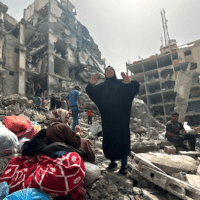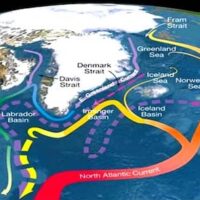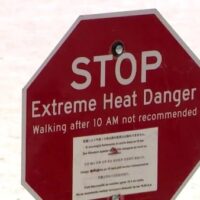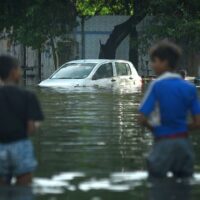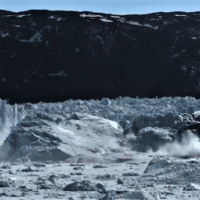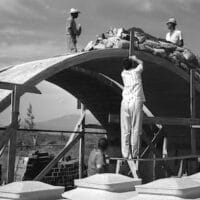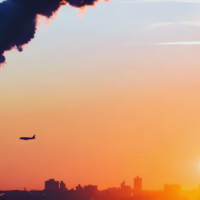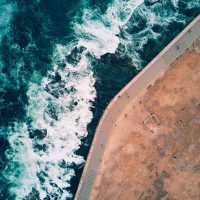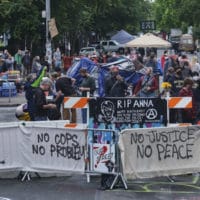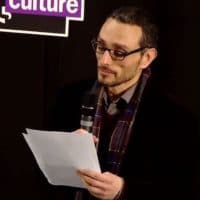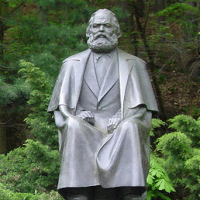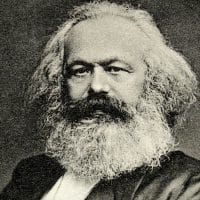-
AI is bad for the environment, and the problem is bigger than energy consumption
The collective energy demand of data centres in the United States is so high that Microsoft recently reached a deal to reopen Three Mile Island, the site of the worst nuclear accident in American history.
-
Friday essay: ‘A future of dust’ – Jeff Sparrow on Gaza and why, in evil times, writers have a responsibility to take sides
“We must ask for no references to Gaza/Palestine/Israel as it’s a very sensitive topic in our area. If these topics are included it drastically changes our risk management plans for events. Thus for safety and harmony we kindly ask the guest speakers avoid these topics and any questions about it that come up.” – Sam Wallman and I received this message from our publicist, one day before an event at a suburban library about our coauthored book.
-
Meltwater from Greenland and the Arctic is weakening ocean circulation, speeding up warming down south
A vast network of ocean currents nicknamed the “great global ocean conveyor belt” is slowing down.
-
An American flag, a pencil sharpener−and the 10 Commandments: Louisiana’s law to mandate biblical displays in classrooms is the latest to push limits of religion in public schools
Louisiana is not a stranger to controversy over religion in schools.
-
Heat index warnings can save lives on dangerously hot days−if people understand what they mean
You’ve probably heard people say, “It’s not the heat, it’s the humidity.” There’s a lot of truth to that phrase, and it’s important to understand it as summer temperatures rise.
-
Heidegger in ruins? Grappling with an anti-semitic philosopher and his troubling rebirth today
The story of German philosopher Martin Heidegger (1889-1976) and his posthumous reception almost reads like the plot of an airport spy thriller.
-
IPCC’s conservative nature masks true scale of action needed to avert catastrophic climate change
The Intergovernmental Panel on Climate Change’s (IPCC) synthesis report recently landed with an authoritative thump, giving voice to hundreds of scientists endeavouring to understand the unfolding calamity of global heating.
-
What’s going on with the Greenland ice sheet? It’s losing ice faster than forecast and now irreversibly committed to at least 10 inches of sea level rise
Alun Hubbard: “As a field glaciologist, I’ve worked on ice sheets for more than 30 years. In that time, I have witnessed some gobsmacking changes.”
-
Cuba’s post-revolution architecture offers a blueprint for how to build more with less
Around the world, there’s a conjoined crisis of climate change and housing shortages—two topics at the top of the list of discussions in the recent COP26 climate summit in Glasgow.
-
It’s all in the flag: Bussa’s Rebellion and the 200-year fight to end British rule in Barbados
Prince Charles, as a representative of Queen Elizabeth II, was in attendance, providing a royal seal of approval. Barbados gained its independence in 1966, though the new nation kept ties to its former overlords by keeping Elizabeth II as a symbolic head of state.
-
Two classes of trans kids are emerging–those who have access to puberty blockers, and those who don’t
For decades, kids who didn’t conform to the gender expected of them were forced to endure treatments designed to “cure” their gender nonconformity. This form of therapy, called “reparative” or “corrective,” typically involved instructing parents–and sometimes teachers–to subject children to constant surveillance and correction.
-
Climate scientists: concept of net zero is a dangerous trap
Sometimes realization comes in a blinding flash. Blurred outlines snap into shape and suddenly it all makes sense. Underneath such revelations is typically a much slower-dawning process. Doubts at the back of the mind grow.
-
‘The Mauritanian’ rekindles debate over Gitmo detainees’ torture–with 40 still held there
“The Mauritanian,” directed by Kevin Macdonald, is the first feature film to dramatize how the war on terror became a war in court.
-
Nobel prize-winning economics of climate change is misleading and dangerous – here’s why
While climate scientists warn that climate change could be catastrophic, economists such as 2018 Nobel prize winner William Nordhaus assert that it will be nowhere near as damaging.
-
Revolutionary ideals of the Paris Commune live on in Black Lives Matter autonomous zone in Seattle
The Capitol Hill Autonomous Zone in Seattle–or Chaz as it has come to be known–was set up on June 8 in the Capitol Hill area of Seattle. It came about as a result of BLM protesters moving in after the Seattle police abandoned the precinct due to clashes with protesters.
-
Closing polling places is the 21st century’s version of a poll tax
Delays and long lines at polling places during recent presidential primary elections – such as voters in Texas experienced – represent the latest version of decades-long policies that have sought to reduce the political power of African Americans in the U.S.
-
How getting rid of ‘shit jobs’ and the metric of productivity can combat climate change
Yes, we’ll be less efficient. But we’ll be happier, more useful and better able to tackle climate change.
-
Oxford-style debate: Ethno-nationalism and systemic crisis are symptoms of the present
In his 1999 book The Bridge over the Racial Divide, William Julius Wilson wrote that economic insecurity creates conditions that hollow out the civic values of liberal democracy, and constitutes the “breeding grounds for racial and ethnic tensions”.
-
What Karl Marx has to say about today’s environmental problems
Following the collapse of the Soviet Union and an economic shift in China it seemed that capitalism had become the only game in town. Karl Marx’s ideas could safely be relegated to the dustbin of history. However the global financial crash of 2008 and its aftermath sent many rushing back to the bin.
-
Karl Marx at 200: why the workers’ way of knowing still matters
Thinking of the relevance of Karl Marx on the 200th anniversary of his birth on 5 May 1818, takes me back to a wonderful picture of him in Algeria. It was taken in his final year in 1882. Underneath the full white beard is that familiar glint in his eye. He is up to something.


